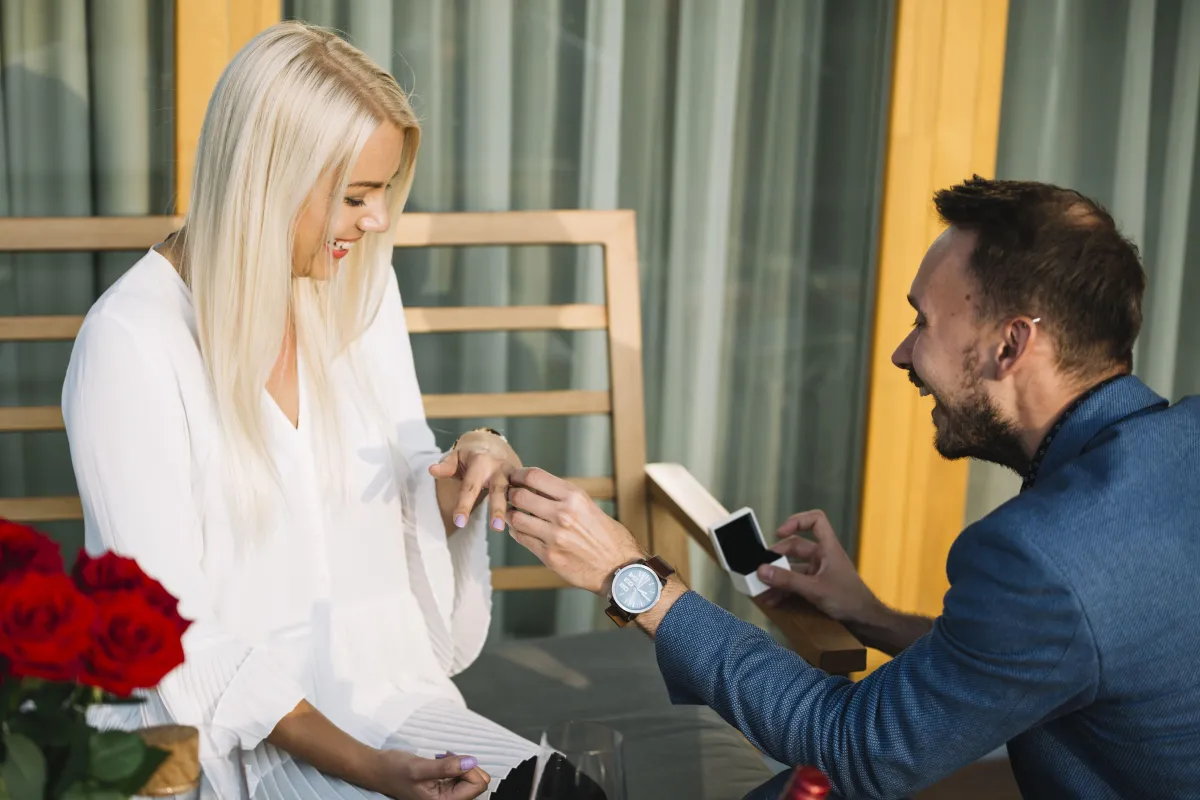Coping with Divorce: How to Heal, Move Forward, and Reclaim Your Life

Introduction
"Divorce isn't just a legal event—it's an emotional earthquake."
If you're here, chances are you're navigating the heartache, confusion, or even numbness that comes with the end of a marriage. First, take a breath. You’re not alone—and what you’re feeling is valid. Whether the divorce was your choice, theirs, or mutual, the aftermath can leave you feeling emotionally wrecked, mentally scattered, and physically drained.
This guide is here to walk alongside you. We won’t sugarcoat the journey, but we will give you tools to understand your emotions, find stability, and eventually rebuild a life that feels whole again.
You’ll learn:
Why divorce pain cuts so deep
The emotional stages people often go through
Tips to regulate emotions and find daily stability
How to cope when you still love your ex
Gender-specific healing paths
And ultimately, how to move forward
Let’s take it one step at a time.
Understanding the Emotional Impact of Divorce
Why Divorce Hurts So Much
The pain of divorce is unique—and in many ways, it mimics the grief of losing a loved one. But while death often brings closure and support, divorce can feel like an open-ended wound. You’re not just mourning a person—you’re grieving a life you thought you’d have.
The American Psychological Association (APA) notes that divorce can trigger intense psychological stress, often manifesting in depression, anxiety, sleep issues, and even physical health problems like headaches or weakened immunity.
You may feel like your identity is shaken. Your routines, your home, your future plans—suddenly, they all look different. That’s why it hurts so much. It’s not just about love lost; it's about the loss of stability, dreams, and sometimes even self-worth.
Common Emotions People Face
Here’s what many people report feeling after a divorce:
Sadness: A deep sorrow over what was and what will never be.
Anger: At your ex, yourself, or the situation. It can feel like betrayal or injustice.
Fear and Anxiety: What does life look like now? Will you be okay?
Guilt: Could you have done something differently? What about the kids?
Relief: Yes, that too. And then feeling guilty for feeling relieved.
“It was the right decision, but it still broke me.” — Anonymous case study, support group participant
Early Stage Coping: When It’s All Fresh
Coping with Shock and Denial
The first few weeks after a divorce—or even just the initial separation—can feel surreal. You may find yourself thinking:
“Maybe this is just temporary.”
“They’ll come back.”
“This can’t be real.”
These thoughts are natural. Denial and hope for reconciliation are common coping mechanisms in the early stage. You might fluctuate between panic and numbness. That’s okay.
Try “emotional first aid” strategies like:
Breathing exercises: Inhale for 4, hold for 4, exhale for 6.
Journaling: Write without judgment. Let it out.
Connecting with a close friend: Just one. You don’t have to explain everything.
What to Do When Your Spouse Leaves You
If you’ve been left, the pain may feel doubled. The ground may feel like it’s shifting beneath you.
Here's a quick checklist of what to do next:
Secure your space: Change passwords, check finances, safeguard your emotional and physical environment.
Seek legal advice: Even if reconciliation is possible, protect your rights.
Reach out, don’t isolate: Join a divorce support group or talk to a therapist.
Practical Tips for Daily Coping
Building New Routines
One of the best ways to find stability in chaos is to build structure.
Wake up and go to bed at consistent times
Move your body, even just 10 minutes a day
Eat regularly and nourish yourself—yes, even if you’re not hungry
These small anchors will help your brain and body regain a sense of control.
Emotional Regulation Techniques
Journaling: Studies by Mental Health America show it can help process trauma and lower stress levels.
Therapy: According to the Mayo Clinic, counseling improves emotional resilience, especially during life changes.
Support groups: Knowing others feel what you feel can be healing in itself.
E-A-T Tip: We strongly encourage speaking with a Rebuilders coach. While friends and self-help tools are supportive, professional guidance is vital and Rebuilders coaches offer dramatic results in far less time.
What If You Still Love Them?
How to Cope with Divorce When You Still Love Him
Love doesn’t switch off just because a legal document says so. You can grieve a relationship that wasn’t good for you and still miss it deeply. Acceptance doesn’t mean pretending the love wasn’t real—it means acknowledging that love and still choosing to let go.
Try this: Write a letter to your ex. Don’t send it. Just express what you wish you could say. It can be a powerful step toward emotional closure.
Gendered Emotional Journeys
Divorce Advice for Women
Women often face unique challenges post-divorce, such as:
Loss of identity, especially if you were a caregiver or homemaker
Financial instability
Fear of judgment from family, community, or culture
Support and self-reinvention are critical. Start with small wins—budget planning, personal hobbies, reconnecting with friends.
How Men Cope with Divorce
Many men suppress their emotions due to cultural expectations. But unspoken grief still manifests—as anger, isolation, or even workaholism.
Men often delay seeking help. But support groups and therapy can offer tremendous relief.
Stat: A 2021 study published in the Journal of Men's Health found divorced men are 2.5x more likely to experience depression than married men.
Navigating Divorce Grief
Divorce Grief is Real
Just like when someone dies, there are stages: denial, anger, bargaining, depression, acceptance. But unlike death, your ex may still be around—co-parenting, texting, or even moving on publicly. That’s what makes divorce grief feel so messy.
Healthy vs. Unhealthy Coping
Unhealthy patterns:
Isolating yourself for weeks
Numbing with alcohol, drugs, or binge behavior
Lashing out at your ex or children
Healthier alternatives:
Talking to a trusted friend or therapist
Engaging in a new hobby
Volunteering or giving back
How to Begin Healing and Moving On
Accepting the End of the Relationship
Grief often lingers until we give ourselves permission to close the door.
Write a goodbye letter (don’t send it).
List the reasons why the relationship ended.
Say out loud: “I’m allowed to move on.”
These small rituals matter.
Redefining Your Identity After Divorce
You’re no longer someone’s spouse—but you are still you. Rediscover yourself by:
Setting new personal goals
Learning a skill you never had time for
Traveling solo (even locally)
Rebuilding Your Social Life
Loneliness can creep in. Don’t wait for people to check in—take the first step.
Join a meetup group or hobby class
Say yes to invitations
Set boundaries with your ex to protect your peace
Final Thoughts: You Will Get Through This
This chapter may feel like an ending—but it’s also the start of something new. Divorce is hard, but it doesn’t define you. You’re allowed to hurt. You’re allowed to take your time. And you’re absolutely allowed to find joy again.
Lean on support. Choose healing. Trust that this pain will pass.
Related Posts

When to Start Dating Again: Signs You’re Ready
After divorce, the idea of dating can feel like stepping into a storm—exciting, but scary. You might wonder if you’re ready or if it’s too soon to try. At Rebuilders International, we’ve spent over 40 years helping people find clarity with our proven approach, backed by the Fisher Divorce Adjustment Scale (FDAS). This isn’t about rushing into love—it’s about knowing you’re ready to connect authentically. Here’s how to spot the signs and take that step with confidence.
Why Timing Matters for Dating
Jumping into dating too early can stir up old wounds, but waiting forever might mean hiding from life. Friends might nudge you to “get back out there,” but readiness isn’t about a calendar—it’s about your heart. Our method, tested by thousands, shows that dating works best when you’re grounded in yourself. The FDAS, with its .93 reliability, proves emotional clarity makes all the difference. Let’s explore the signs you’re there.
5 Rebuilders Signs You’re Ready to Date
These signs, drawn from our 10-week workshop, use our unique tools to help you know when you’re ready, rooted in trust and self-awareness:
You’re Done with “What Ifs”
If your mind’s no longer stuck on “Why did it end?” or “Could I have fixed it?” you’re moving forward. Our free self-test checks your disentanglement score—high scores mean you’re free from past loops. A group member said, “I stopped replaying the past and started seeing the future.” This clarity, like our thinking-phase work, shows you’re ready for new connections.You Feel “I Am Enough”
Dating from a place of lack invites old patterns. Our core belief? You’re a “gem,” whole as you are. If you can say, “I am enough,” and mean it, you’re on solid ground. A woman in our support group said this gave her confidence to chat without needing approval. This self-worth, tied to our identity tools, is a green light for dating.You Enjoy Your Own Company
If alone time feels peaceful, not lonely, you’re likely ready. Our groups teach that liking yourself is the foundation for liking someone else. One client said rediscovering solo hikes made him excited to share that joy. Check your self-test’s self-worth score—strong numbers here mean you’re not dating to fill a void, a key from our identity phase.You Trust Your Boundaries
Readiness means knowing what you want—and what you won’t accept. Our exercises, like listing your “must-haves,” help you set clear boundaries. A man in our online groups said this stopped him from chasing unhealthy matches. If you feel confident saying “no” kindly, our relationship-phase work shows you’re prepared to date.You’re Curious, Not Desperate
If you’re excited to meet someone new—not to fix your life, but to share it—you’re in the right headspace. Our “needs check-in” tool asks, “What do I want?” A participant said feeling curious about a date’s story, not their “potential,” was her sign. High social trust scores on our self-test signal you’re ready to connect from care, not need.
Dating on Your Terms
Knowing when to start dating again is about trusting yourself, not checking a box. Our structured approach has helped thousands since 1974, with workshop completers since 2021 showing stronger social trust via FDAS scores. You can step into dating with clarity too, one honest moment at a time.
Need Clarity? We’re Here
Figuring out if you’re ready can be tricky, but our programs—online, in-person, or self-paced—offer tools and a community to guide you. Visit our homepage or book a free clarity call. Want to start small? Join our free support group Tuesdays online.
You’re Ready When You Say So
You’re built for connection on your own terms. What’s one sign you’re noticing in yourself today? Share below—we’re cheering for you!


